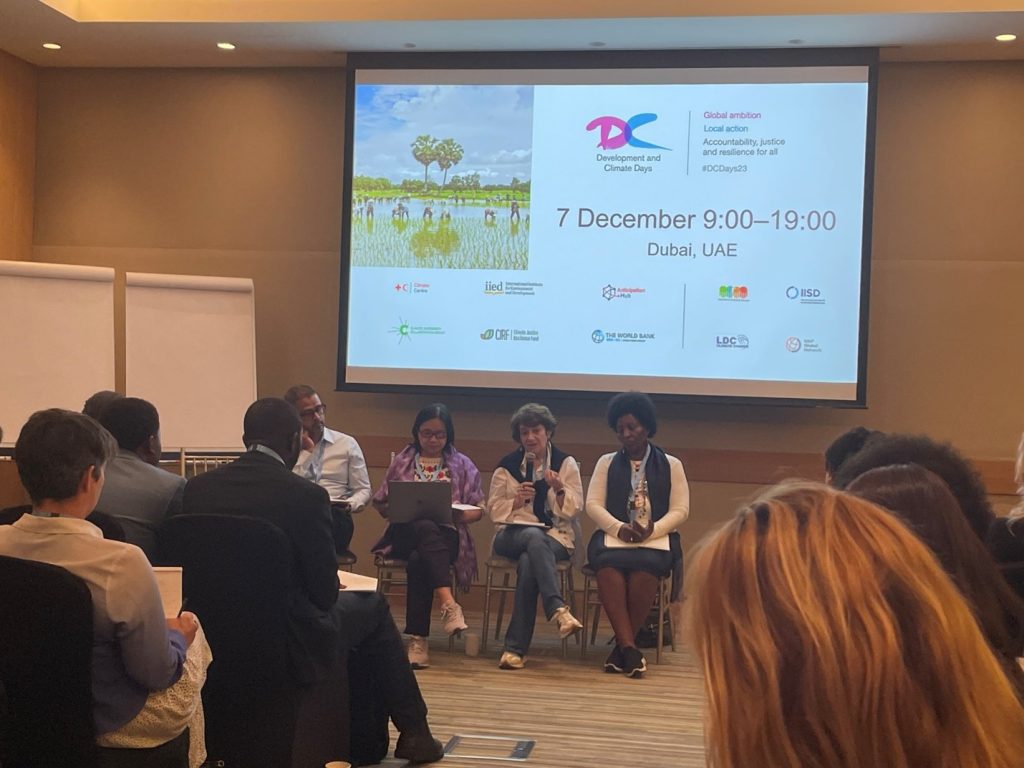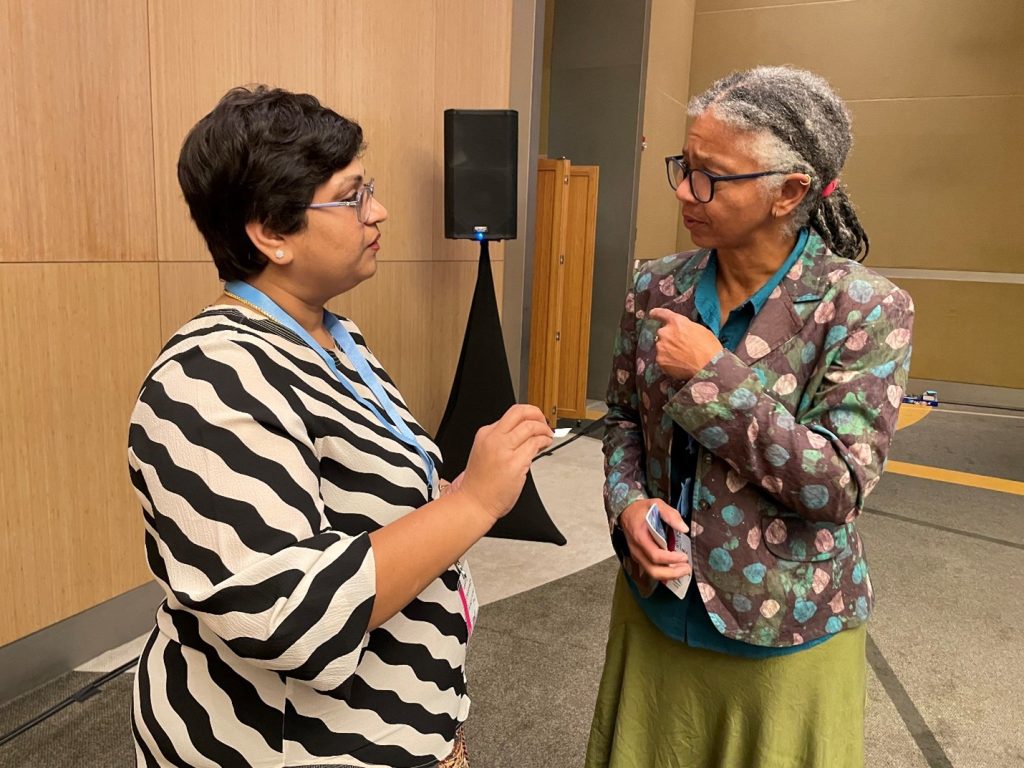ESA at COP 28, Week 2: Day of Rest, Dec. 6
By Dennis Ojima
Development and Climate Day
Soft Landing to CoP28
I arrived in Dubai at the end of the first week of the CoP28 conference. Attendees were surprised and delighted about the announcement made by the United Arab Emirates’ COP28 President Sultan al-Jabert on the first day of COP28 about the launch of a Loss and Damage Fund that will benefit many vulnerable communities across the globe at risk to the effects of climate change.
Between the first and second week of the CoP conference, Dec. 8 was a designated day for rest for attendees to recharge and to regroup from a frustrating first week negotiations between countries without any real progress to address climate change.
But instead of having a rest day, I joined a hardy group of over 200 participants who persevered to participate in a full day workshop discussion called ‘The Development and Climate Day’ to informally discuss the links between climate change and development. This event was organized in partnership by the Red Cross Red Crescent Climate Centre (RCCC), the International Institute for Environment and Development (IIED), the Anticipation Hub, the Climate Emergency Collaboration Group, the Climate Justice Resilience Fund (CJRF), the Food and Agriculture Organization of the United Nations (FAO) and the World Bank. Additional support for the 2023 event came from the Adaptation Research Alliance (ARA), “Generating Ambition for Locally Led Adaptation” core partners, with funding from the Government of the Netherlands, NAP Global Network, hosted by the International Institute for Sustainable Development (IISD), and the Least Developed Countries Initiative for Adaptation and Resilience (LIFE-AR).
The Development and Climate Day was initially organized by Saleemul Huq, the founding director of the International Centre for Climate Change and Development in Dhaka, as a way for civil society groups to informally share perspectives and strategies to further climate response actions. Unfortunately, Saleemul passed away earlier this year. The announcement of the Loss and Damage Fund was especially relevant to this Development and Climate Day event and to the organizers since Saleemul had championed the need for such a mechanism to finance less developed countries suffering from climate impacts and devoted his efforts over the past 2 years to draft policy language for the establish of the Loss and Damage Fund.

Key themes for the day of break out groups were:
- Decolonizing climate finance
- Equitable climate partnerships
- Accountability for the Paris goals
I chose to participate in the sessions on Decolonizing climate finance to learn more about the context framing of how climate action funding would be implemented. The discussion centered around how climate adaptation and nature based solution actions are needed at the local scale to develop mechanisms that are usable and feasible to match local needs and capacity.
The discussions also brought a number of challenges related to finding the “right” processes, defining local community and environmental context in a meaningful way, and creating a flexible support system between the donor community, the governmental institutions, and local communities. The donor community and the government institutions were challenged with the question if these institutions are willing to accept these emerging processes to support local actions. Donors in the room, primarily development banks, indicated that many constraints needed to be overcome to match funding with local communities although it was observed that radical changes have taken place already in the past few decades.
Let me close on this off-day discussion to say that the spirit of discussions were a mixture of excitement, constructive concern, and dedication to the hard work yet to be done to turn these aspirations into a reality to meet the challenges faced by the most vulnerable peoples and places across the world.

Dr. Gillian Bowser, pictured right, is a wildlife ecologist and associate professor at Colorado State University’s Natural Resource Ecology Lab. She networked with a number of groups and individuals during the COP28 workshop.